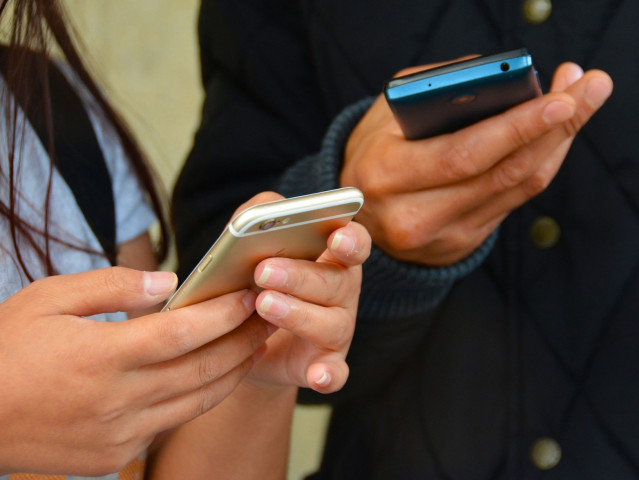Companies can track phone movements to target users with ads
Google and Apple have taken steps this year to protect users from hundreds of companies

Google and Apple have taken steps this year to protect users from hundreds of companies that gather profiles with the help of information about user's political interests, health, shopping behavior, race, gender, and more.
However, while Google will collect data from its own search engine and from sites like YouTube or Gmail it but would phase out third-party cookies on its Chrome browser, making it harder for advertisers to track our browsing habits.
Apple and Google also banned the use of location tracking in apps that use a new contact tracing system the two are building to help slow the spread of the novel coronavirus.
The tech giant, whose operating systems power 99% of smartphones, said last month they would work together to create a system for notifying people who have been near others who have tested positive for Covid-19, the disease caused by the coronavirus. The companies plan to allow only public health authorities to use the technology.
Both companies said privacy and preventing governments from using the system to compile data on citizens was a primary goal. Apple says it will make it mandatory for apps in a forthcoming version of iOS to ask users before tracking them across services.
Facebook accused of secretly watching Instagram users through cameras
A poll from June showed as many as 80 percent of respondents would not opt into such as tracking, reports Wired.
Despite such efforts “big companies with large repositories of first-party data about their consumers probably aren’t going to be terribly negatively impacted,” says Charles Manning, CEO of the analytics platform Kochava.
Companies looking for new ways to categorise users and customised content are turning to a new tool: physical signals from the smartphone itself.
“We see Apple's announcements, consumers getting more conscious of privacy, and the death of the cookie,” says Abhishek Sen, co-founder of NumberEight, a “contextual intelligence” startup in the UK that infers user behavior from sensors in their smartphone.
Individual preference helps companies brand themselves in ways that would appeal to a larger audience.
Sen describes NumberEight’s chief product as a “context prediction software” tool that helps apps infer user activity based on data from a smartphone’s sensors: whether they’re running or seated, near a park or museum, driving, or riding a train.
How to find your lost Android phone using Google
Most smartphones are equipped with internal components that tend to record data on user movements all thanks to sensors within the device.
NumberEight’s tech was built around travel, collecting sensor data as part of research on London commuters, whose bus and train fares are based on the distance traveled.
Sen researched using sensor data to determine when someone had exited a train or bus, to charge their fare automatically.
Due to the given “incredibly long sales cycle” of public contracts, Sen says, the app pivoted to music and other commercial services, the feedback from the sensors provides “context” on the user’s physical behavior.
“You don't need to know the individual. You just need to know whether your product or service is going to land with the right audience,” says Sen

















COMMENTS
Comments are moderated and generally will be posted if they are on-topic and not abusive.
For more information, please see our Comments FAQ